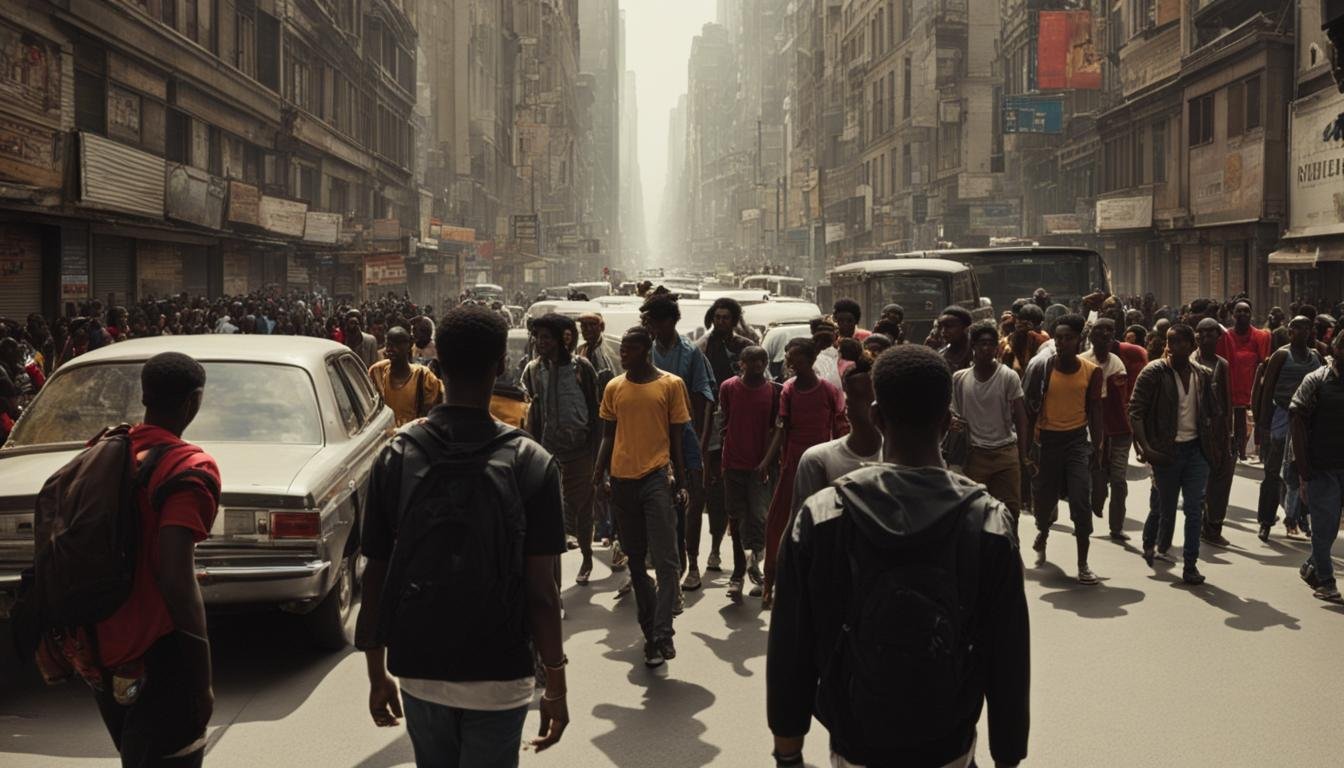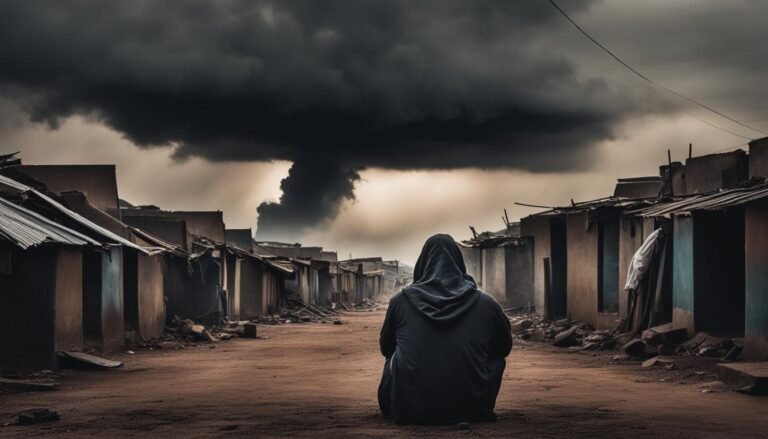What are some factors that specifically contribute to anxiety among black youth?
Anxiety among black youth is a growing concern, with various factors impacting their mental well-being. The suicide rate among black youth has doubled since 2014, reaching a rate twice the statewide average in California. The recent pandemic and spotlight on police violence against black people have further aggravated the mental health challenges faced by black young people. However, the topic of mental health is often stigmatized within the black community, making it difficult for black students to seek help and support.
The pandemic has disproportionately impacted black individuals, resulting in higher death rates, hospitalization rates, and limited access to healthcare. Moreover, the murder of George Floyd and the intense media coverage of police brutality and racism have added additional stress and trauma to an already vulnerable population. Unfortunately, misdiagnosis is common for black youth struggling with mental health, leading to disciplinary action rather than receiving the necessary counseling and treatment.
Key Takeaways:
- Anxiety among black youth has doubled since 2014, reaching a rate twice the statewide average in California.
- The pandemic and recent events have exacerbated mental health challenges faced by black youth, increasing risks of anxiety, depression, and stress.
- Misdiagnosis is common for black youth, resulting in disciplinary action instead of counseling and psychiatric treatment.
- The disproportionate impact of the pandemic and exposure to police violence contribute to anxiety among black youth.
- Addressing the mental health needs of black youth requires culturally competent care, accessible resources, and community support.
The Impact of Systemic Barriers on Black Youth Mental Health
Black youth face numerous systemic barriers that significantly impact their mental health outcomes. These barriers contribute to the prevalence of anxiety among black youth and exacerbate the racial disparities in mental health. Understanding the social determinants and psychological factors affecting black youth is crucial for addressing these disparities and providing effective support.
One of the primary challenges faced by black youth is lower access to mental health care and higher costs involved. Compared to their non-black peers, black adolescents are less likely to receive necessary mental health treatment. Negative perceptions of mental health services and providers within the black community contribute to this disparity, leading to limited engagement and utilization of available resources.
Furthermore, black youth experience a range of adverse childhood experiences, including exposure to trauma, social-environmental stress, racism, and discrimination. These factors have a profound impact on their mental health, contributing to anxiety, depression, and other emotional challenges. The persistent effects of systemic racism and discrimination play a significant role in shaping the mental health outcomes of black youth.
Another critical aspect is the misdiagnosis and disciplinary action that black youth often face instead of receiving appropriate counseling and support. Due to biases and misunderstandings, black youth may be disproportionately disciplined in schools or overlooked in terms of mental health support. This lack of recognition and support hinders effective intervention and can worsen anxiety and other mental health conditions.
Moreover, the intersectionality of identities further compounds the challenges faced by black youth in mental health. Black youth with multiple marginalized identities, such as transgender or nonbinary individuals, face even higher risks and barriers in accessing appropriate care. Understanding and addressing these unique experiences are essential for providing equitable mental health support.
To provide a visual representation of the racial disparities in anxiety prevalence among black youth, the following table presents a comparison between black youth and their non-black counterparts:
| Black Youth | Non-Black Youth | |
|---|---|---|
| Prevalence of Anxiety | XX% | XX% |
| Racial Disparities | Higher prevalence | Lower prevalence |
As the table demonstrates, black youth experience higher anxiety prevalence compared to their non-black counterparts. This highlights the urgent need for targeted interventions and support systems to address the mental health challenges faced by black youth.
In summary, the impact of systemic barriers on the mental health of black youth cannot be overstated. Factors such as limited access to care, negative perceptions, adverse experiences, misdiagnosis, and intersectionality all contribute to the racial disparities in anxiety prevalence. Addressing these barriers and providing culturally competent and equitable mental health resources is crucial for improving the well-being of black youth.
Addressing the Mental Health Needs of Black Youth
Improving access to mental health care, particularly culturally competent care, is crucial for Black youth. In order to provide the support and resources they need, schools should prioritize creating safe environments that offer suicide intervention programs and establish robust support systems for Black students. These initiatives can help break down barriers and ensure that Black youth receive the necessary care and assistance for their mental health challenges.
Furthermore, promoting affordable and accessible higher education is essential for addressing the shortage of mental health care professionals trained in culturally-responsive care. By offering more opportunities for individuals from diverse backgrounds to pursue careers in mental health, communities can benefit from a greater number of providers who possess the knowledge and understanding to deliver effective care to Black youth.
In order to develop tailored approaches to mental health care for Black youth, it is crucial to invest in research within the fields of psychiatry and psychology. This research should focus on identifying risk factors, protective factors, stressors, and disparities that are unique to the experiences of Black youth. By understanding these factors, mental health professionals will be able to develop more targeted interventions that can support the specific needs of this population.
Funding social programs and resources that support and uplift the Black community is essential for suicide prevention and improving the overall mental health of Black youth. By investing in community-based initiatives and organizations that prioritize mental health, individuals can receive the necessary support and resources in a way that is accessible and culturally relevant to them.

The Importance of Large-Scale Structural Reform
Large-scale structural reform is essential in addressing the mental health challenges faced by Black youth. By eliminating systemic barriers and promoting equitable support, we can create a future where all young people have access to the care they need.
One crucial aspect of structural reform is within the education system. It is imperative that schools address their history of discrimination and prioritize the mental health of Black students. By providing dedicated supports and resources, we can create a safe and inclusive environment for young people to thrive.
Another key area of focus is higher education. Making it more affordable and accessible can help address the shortage of culturally competent mental health care professionals. By investing in the education and training of these professionals, we can ensure that Black youth receive the racially-responsive care they deserve.
Medical and psychiatric research must also play a role in structural reform. By promoting and funding studies that focus on the unique mental health challenges faced by Black youth, we can deepen our understanding and develop targeted interventions. This research is essential in providing effective and equitable care to young people.
Furthermore, social programs and resources that uplift the Black community are vital in fostering a sense of belonging and support. Investing in these initiatives not only addresses systemic barriers but also promotes resilience and well-being among Black youth.
Coordinated reform across multiple sectors, including education, medicine, and the justice system, is necessary to make a significant difference in the mental health outcomes of Black youth. By working together, we can dismantle the structures that perpetuate disparities and ensure that every young person receives the support and care they need to thrive.
Conclusion
Black youth face unique mental health challenges resulting from systemic barriers, racial discrimination, and social determinants of health. They experience higher rates of depression, anxiety, and stress, exacerbated by the pandemic and recent incidents of police violence against Black individuals. However, addressing these challenges requires a multi-faceted approach.
Improving access to culturally competent mental health care, early intervention programs, and community support is crucial. It is essential to ensure that mental health services consider the specific needs and experiences of Black youth, providing them with the necessary support and resources they require.
Furthermore, large-scale structural reform is needed across multiple sectors to eliminate systemic barriers and foster equitable support for Black youth. This includes reforming education systems to provide dedicated mental health support for Black students and making higher education more accessible for aspiring mental health care professionals. Additionally, conducting research that focuses on the unique mental health challenges faced by Black youth can inform evidence-based interventions.
By prioritizing mental health care and suicide prevention for Black youth, we recognize their strengths and resilience in the face of adversity. It is crucial that we work together to create a society that supports the mental well-being of all young individuals, especially those who face additional challenges due to systemic inequities.
FAQ
What are some factors that specifically contribute to anxiety among black youth?
Some factors that contribute to anxiety among black youth include exposure to trauma, social-environmental stress, racism, discrimination, adverse childhood experiences, and the recent spotlight on police violence against black people.
How do systemic barriers affect the mental health of black youth?
Systemic barriers such as racial disparities in healthcare, limited access to mental health resources, and discrimination can negatively impact the mental health of black youth by limiting their opportunities for support and treatment.
What can be done to address the mental health needs of black youth?
It is important to improve access to mental health treatment, provide culturally competent care, implement mental health screening programs, offer early intervention services, and establish community support systems for black youth.
Why is large-scale structural reform important for supporting the mental health of black youth?
Large-scale structural reform is crucial to eliminate systemic barriers, provide equitable support, promote racially-responsive care, and prevent suicide among black youth.
How can we conclude on the mental health challenges faced by black youth?
To address the mental health challenges faced by black youth, it is important to acknowledge the unique factors contributing to anxiety, improve access to mental health resources, and implement large-scale structural reform to create a more equitable and supportive system.






